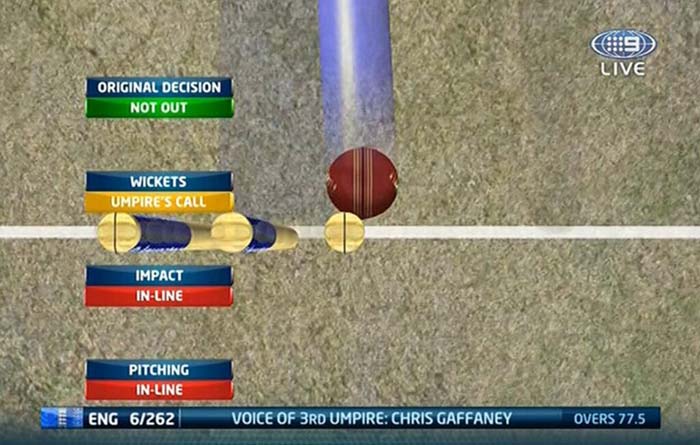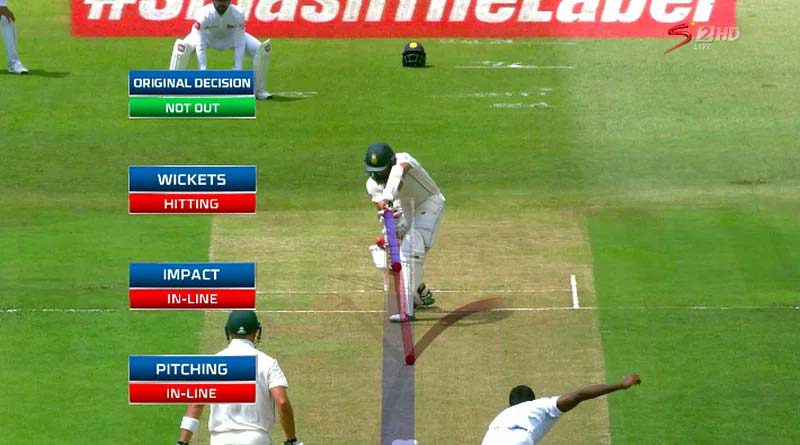ICC changed the way the third umpire reviews LBW
Ever since DRS (Decision Review System) was introduced in the game of cricket, it has changed the way cricket used to be played. Not only has it made the Umpires more careful but also given the teams a chance to salvage the game if they felt some decision was faulty. Many a time DRS has changed the course of the game by reversing a decision at a crucial juncture. And now ICC changed the way the third umpire reviews LBW decisions.
Whether you are a die-hard follower of cricket or you have started watching cricket for playing fantasy cricket league, these are important decisions for you to know.
The ICC (International Cricket Council) Cricket Committee, led by former India captain Anil Kumble, has introduced changes related to the way LBWs will be adjudged under DRS. Let’s get on with it and see what are these changes and how will they impact the game.
What are these changes made by ICC?
There were 3 important DRS-related decisions made public by ICC Cricket Committee on April 1, 2021. Two of these pertain to DRS review of an LBW decision.
Wicket Margin or Wicket Zone

The ICC issued a statement that for the DRS reviews of an LBW decision, the “height margin of the Wicket Zone will be lifted to the top of the stumps to ensure the same Umpire’s Call margin around the stumps for both height and width.”
This really changes the way the third umpire reviews LBW decisions currently and it means a bigger danger for the batsmen. It also means a better opportunity for the bowlers to bag another wicket.
Inquiry before review
A player can now ask the Umpire if a genuine effort was made to play the ball even before asking for a review of the LBW decision.
Short-run
Another significant change, although not related to LBW, is that the third Umpire will now check a replay for any ‘short run’ that has been called for a review.
In spite of these decisions, the ICC unequivocally stated that the ‘Umpire’s Call’ will continue to be a part of the Decision Review System.
What does Wicket Zone mean?
Wicket zone or Wicket Margin is the area that the ball is shown as hitting during a DRS replay. Till 2016, this area was limited to the height of the wickets not considering the bails and half the width of the side stumps. This meant that half-the-ball had to be seen as hitting the bottom of the bails or at least half of off-stump or leg-stump for an LBW decision to be correct.
Then in 2016, ICC made a change that an LBW decision will be upheld if the ball trajectory shows that even 50% of the ball would have hit any part of any of the stumps. This resulted in the expansion of the width margin while maintaining the height margin of the wicket zone to the bottom of the bails.
The current decision increases the height of the wicket zone to the top of the bails from the earlier limit of the bottom of the bails.
How can these decisions change the game?
The most contentious decisions in the history of cricket are LBW decisions and some of these have changed the fortunes of the teams in the biggest of the tournaments. LBW decisions are very subjective to the Umpire’s view and observation and therefore cause confusion and angst amongst playing teams and their fans.
In the past, a lot of LBW decisions were left to Umpire’s call when the ball seems to hit the top of the bails. Now with the entire width and height of the stumps (and bails) being considered there is a smaller room for error in case of an Umpire’s call gone wrong.
We might soon get to see some star batsman losing his wicket 1 run short of his century because of this change. Or we might get to see some team winning a game because the bowler picked an LBW wicket in the last over as per this new height margin.
The other significant decision that allows the teams to ask the Umpires’ opinion before asking for a review will help teams save on their limited reviews. Depending upon the Umpire’s opinion on whether the player made a genuine attempt to play the shot the appealing team might withhold their review. Thus saving one review that might have gone to waste. We have seen how the lack of reviews can impact a team’s chances to win a game.
Another 2 important decisions made by the ICC are related to the Women’s ODI cricket. The ICC has removed the discretionary five-over batting powerplay. The committee also communicated that henceforth all tied matches will be decided by a super over.
If you play fantasy cricket then you must look at the LBW record of bowlers now. The ones who have a good track record of taking LBW wickets have a naturally higher chance to get more wickets than others. Hence, you might get luckier with such bowlers.
And if you are ready to go that extra mile to create your fantasy cricket team then you can also look at the track record of batsmen who have got out many times as a result of LBW. Chances are that they will be the ones who will get punished more by these decisions than other batsmen.
We don’t know how these changes will pan out for the teams in the future but we are sure that there will be fewer errors and the cricket fans will be more satisfied. We hope you liked our analysis of these decisions and their impact on the game of cricket going forward. Keep your love and comments flowing for us.
You may also like
Catch up on all the latest in the cricketing world and fantasy games


